
1. Ridiculously long content is in – because it’s generally associated with really well thought out topics and original research. For more, check out our full post on the data about long content.
![]()
2. Hold your marketing accountable for making you money by tracking conversions – it’s a giant mistake to rely on less objective data, you want to get a real understanding of where qualified leads and true sales are and tracking in Analytics is a great way to annotate marketing efforts and get attribution around what worked. Track conversions – and for service based businesses track real ‘sales-qualified’ leads over time – for the most clarity around your goals.
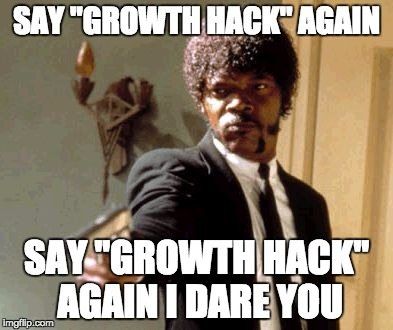
3. Out of all of the digital marketing memes, growth-hacking memes are particularly aggressive – it seems this topic inspires a lot of emotion for many people. It seems they feel ‘growth-hacking’ is a buzz word for what they might consider boot-strapped marketing – or just modern marketing without the need for the term.
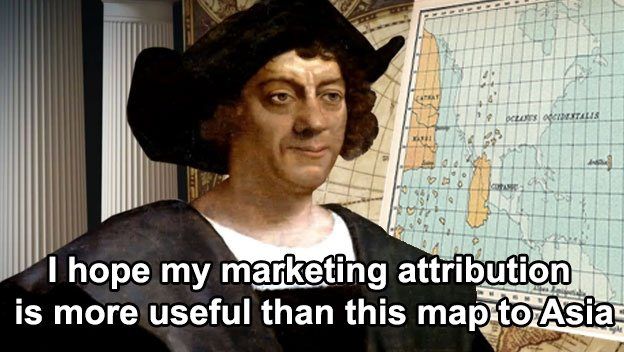
4. Attribution is a particularly wily beast for digital marketers to Snare – but this is why tracking conversions and setting up very clear experiments to try for a month are important. Try to get clarity about what is truly moving the needle by paying close attention to analytics and where visitors are converting from, and be cognizant when something works to document it for the team.
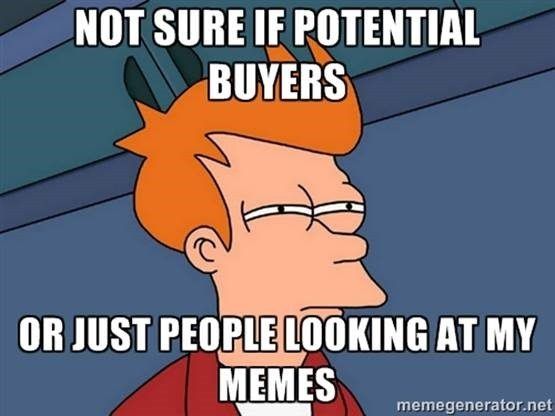
5. Making content for search engines and traffic – and making content for customers are sometimes two separate things. Now this doesn’t mean that you should abandon your quest for page-views, but it does mean that the search for converting visitors, the search for things that will help people convert, and the search for qualified leads should be the top priority.
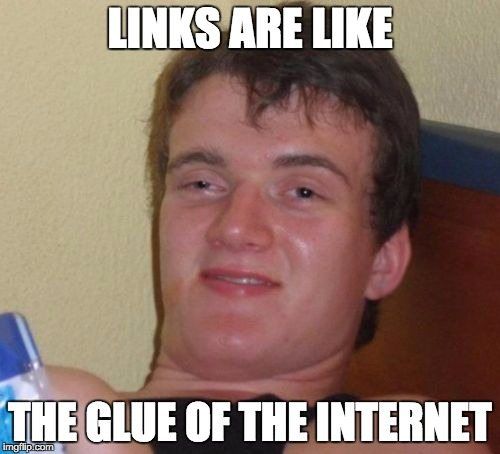
6. SEO or Search Engine Optimization is all about content + links – and it seems half of content marketers and SEO industry people don’t always take this as seriously as the data would reflect. If you’re knee deep in Analytics, and tools like Ahrefs every day, you’ll quickly see – links may matter way more than you possibly could have understood from reading a bunch of buzz-word heavy blog posts.

7. Small businesses should consider outside marketing teams as an augmentation of their marketing – not the only piece. As marketing experts I believe we’re almost like personal trainers; we should be equipping clients with skills that they can use long after they’ve stopped working with us. Yes, we’re constantly working on SEO, content, Ads, and digital marketing campaigns – but we need to take the key things we learn and sharing them enthusiastically with those we worked with. This includes encouraging them to write blog posts themselves – even if we’re doing content marketing for them. There’s nothing wrong with an influx of content – as long as it’s all focused on providing value.

8. All of your efforts are for nothing if you’re not making leads and sales. That being said, a new campaign should be thought as planting the seeds for 3 months from now, especially with things like SEO. Don’t get all hot and bothered when leads don’t skyrocket the first week. We want to create visibility – but if you want a shot of adrenaline to the chest, you should go with something like a big spend on Adwords or Facebook ads; leave the long-term, extremely healthy benefits of a search engine optimization campaign to the real professionals.
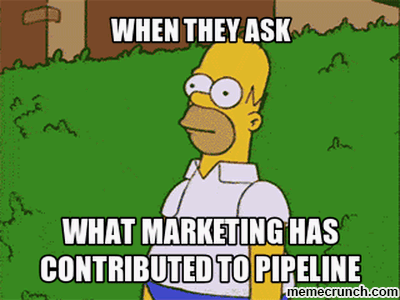
9. And if marketing isn’t contributing to the bottom line, take it out back, shoot it, and bury it. Brand awareness is real, but in the classic sense, that should be tested in certain areas or for a clearly defined set of time to see how it worked. Did it work? If not, move on to the next tactic to test. Test and test again until something truly contributes to the bottom line – marketers should have a clear understanding of the ‘KPI’s’ and be held accountable for a long-term strategy to reach towards the goals set.
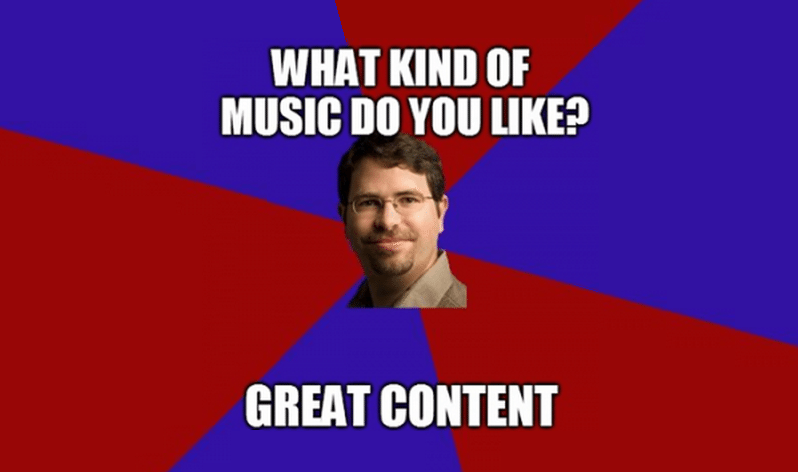
10. Matt Cutts – classic figurehead for Google’s search department and basically public relations guy for the whole Search Engine Optimization community until he stepped down has reiterated over and over again – the best thing you can do is create engaging content and earn links that way.
But my biggest suggestion is to always be experimenting – there are things Google wants you to think are the case, and then there is reality. So as Google downplayed the benefits of guest posting, and finding creative ways to get links – the truth was (and is) these things work really well. Thank you for checking out “10 Memes Explain Internet Marketing“; keep up the good fight and keep experimenting.
